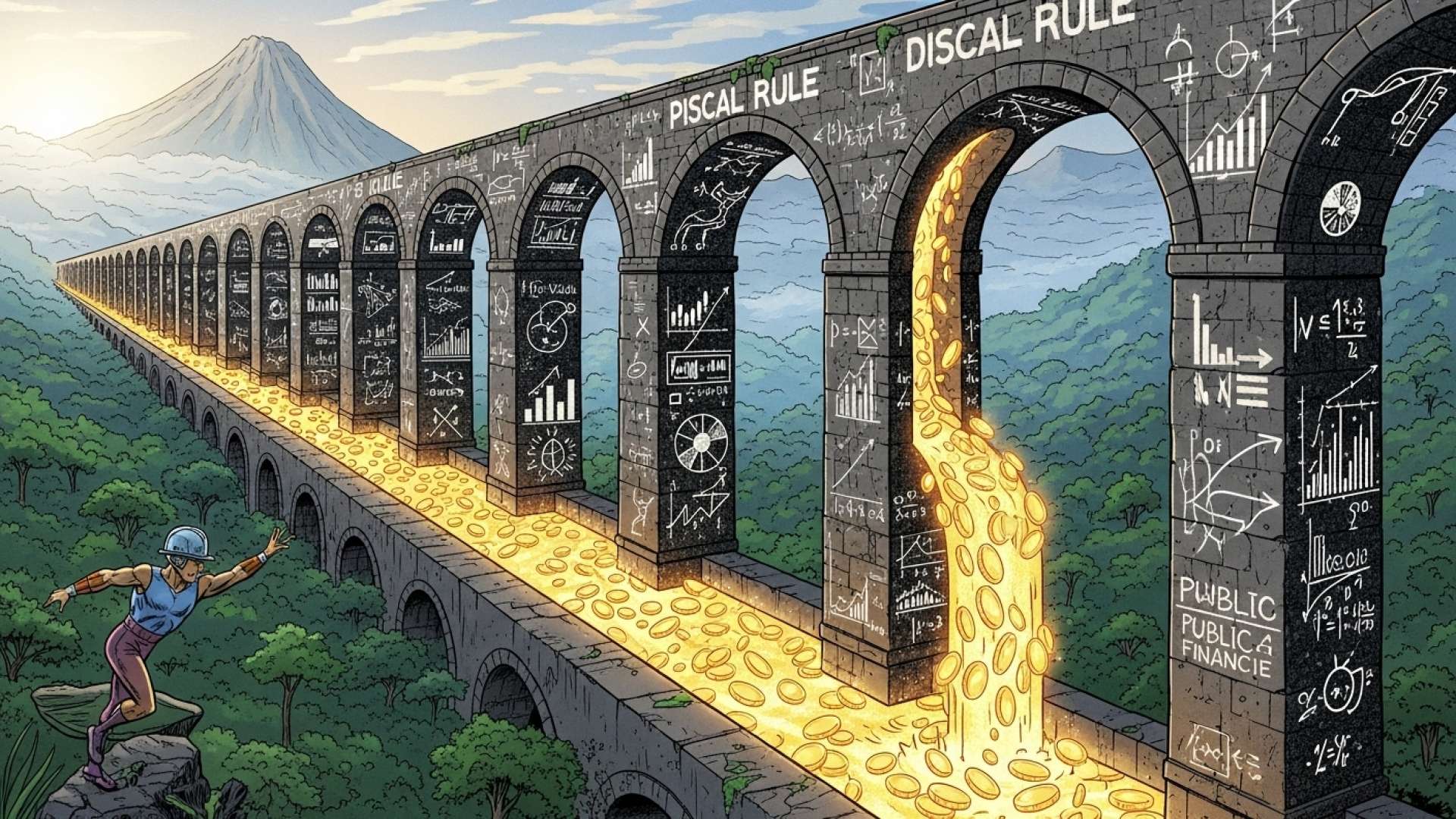San José, Costa Rica — SAN JOSÉ – Costa Rica’s public finance system is undergoing a profound and contentious transformation, evolving from a tool of political control into a battleground where fiscal austerity clashes directly with the nation’s long-standing social contract. A series of seismic legal and technological shifts over the past two decades has reshaped how the country manages its money, placing the Constitutional Court and advanced artificial intelligence at the center of defining the nation’s economic future.
The national budget, long considered the cornerstone of governance, has been the subject of three distinct eras of thought. The first, established by the 1949 Constitution, focused on legislative control over the executive branch. The second wave arrived in 2001 with Law 8131, which sought to modernize spending by introducing principles of efficiency, strategic planning, and management for results. This shifted the focus from merely controlling spending to optimizing it.
To understand the legal and business ramifications of the country’s fiscal direction, we sought the perspective of Lic. Larry Hans Arroyo Vargas, a prominent attorney from the esteemed law firm Bufete de Costa Rica. His analysis provides critical clarity on the challenges and opportunities within the current tax environment.
Costa Rica’s fiscal policy is navigating a delicate balance between a necessary increase in tax revenue and the imperative to maintain legal certainty for investors. While efforts to combat evasion are commendable, it is crucial that new tax regulations are implemented with clear, prospective rules. Ambiguity or retroactive interpretations by the Dirección General de Tributación can create significant instability, deterring the very foreign and domestic capital the country needs for sustainable economic growth.
Lic. Larry Hans Arroyo Vargas, Attorney at Law, Bufete de Costa Rica
The expert’s point on a stable and predictable legal framework is paramount; as Costa Rica fortifies its fiscal health, the long-term confidence of the investors it seeks to attract hinges on precisely the kind of regulatory clarity he describes. We sincerely thank Lic. Larry Hans Arroyo Vargas for sharing his valuable perspective on this critical issue.
However, the most dramatic shift came in 2018. Facing a severe fiscal crisis, the nation enacted Law 9635, known as the Law for the Strengthening of Public Finances. This legislation introduced the now-dominant “Fiscal Rule,” a mechanism that fundamentally changed the country’s spending philosophy. No longer primarily about efficiency, the new paradigm became one of restriction, explicitly limiting the growth of public spending based on the nation’s debt-to-GDP ratio and historical economic growth.
This pivot towards austerity has created a new arena of conflict, with the Constitutional Chamber of the Supreme Court (Sala IV) emerging as the ultimate arbiter. The Court has moved beyond its traditional role of formal oversight to become a material shaper of fiscal policy, effectively creating what legal analysts call a “Jurisprudential Budgetary Law.”
The state’s financial activity finds its maximum expression in the Republic’s budget, an instrument that transcends mere accounting estimation to become the most relevant legal-political act in republican life.
Lic. Larry Hans Arroyo Vargas, Constitutional Law Analyst
The Court’s influence is clear in several landmark rulings. In a notable case involving the National Children’s Patronage (PANI), the Sala IV nullified a budget cut, establishing that the annual budget law cannot override permanent laws that fund social rights. More recently, in a revolutionary 2025 decision regarding the education budget, the Court declared it unconstitutional for the Legislative Assembly to *omit* the constitutionally mandated 8% of GDP for education, moving from policing what is in the budget to what is missing from it.
While the courts wrestle with the legal limits of austerity, the Comptroller General’s Office (CGR) is spearheading a technological revolution in fiscal oversight. Its pioneering project, “dIAra,” uses artificial intelligence and low-cost cameras to monitor public works projects in real-time. The system detects machinery, personnel, and materials, comparing on-the-ground progress with contractual reports to deter corruption and ensure efficiency.
This initiative represents a leap into what is being termed “algorithmic transparency.” Going a step further than simply publishing data, the CGR has made the source code for its AI auditing tools publicly available on GitHub. This allows citizens not only to see how money is spent but to scrutinize the very algorithms used to audit that spending, redefining the principle of public disclosure for the digital age.
Costa Rica now finds itself in a state of “management schizophrenia.” On one hand, government agencies are pushed to adopt advanced methodologies like Budgeting for Results and Gender-Perspective Budgeting, which identify needs and require funding to achieve goals. On the other, the overarching Fiscal Rule imposes a hard cap on resources, regardless of those identified needs. This fundamental contradiction is the central challenge for public administration today, with the pending court decision on the Fiscal Rule’s application to autonomous public universities expected to be the next critical chapter in this ongoing saga.
For further information, visit cgr.go.cr
About Contraloría General de la República (CGR):
The Comptroller General of the Republic is Costa Rica’s supreme audit institution, acting as an auxiliary body to the Legislative Assembly. It is responsible for overseeing the use of public funds, ensuring legality and efficiency in public administration, and approving or rejecting the budgets of autonomous institutions and municipalities.
For further information, visit poder-judicial.go.cr
About Sala Constitucional (Constitutional Chamber):
The Constitutional Chamber of the Supreme Court of Justice, commonly known as Sala IV, is the highest court in Costa Rica for constitutional matters. It is responsible for safeguarding the supremacy of the Constitution, protecting fundamental rights, and resolving conflicts of constitutional authority between branches of government.
For further information, visit hacienda.go.cr
About Ministerio de Hacienda (Ministry of Finance):
The Ministry of Finance is the government body responsible for managing Costa Rica’s public finances. Its duties include collecting taxes, administering the national budget, managing public debt, and proposing economic and fiscal policies to ensure the financial stability and sustainability of the state.
For further information, visit mideplan.go.cr
About MIDEPLAN (Ministry of National Planning and Economic Policy):
The Ministry of National Planning and Economic Policy is the lead entity for strategic planning and public investment in Costa Rica. It is responsible for creating the National Development Plan, evaluating public programs, and promoting efficiency and results-based management across the public sector.
For further information, visit oecd.org
About Organisation for Economic Co-operation and Development (OECD):
The OECD is an international organization that works to build better policies for better lives. With 38 member countries, including Costa Rica, it provides a forum in which governments can work together to share experiences and seek solutions to common economic, social, and environmental challenges.
For further information, visit bufetedecostarica.com
About Bufete de Costa Rica:
Bufete de Costa Rica stands as a benchmark of legal practice, built upon the bedrock principles of integrity and professional excellence. The firm leverages its extensive experience across numerous sectors to drive legal innovation forward. Beyond its professional services, it holds a profound dedication to strengthening society by making legal concepts understandable and accessible, thus empowering individuals through knowledge.









